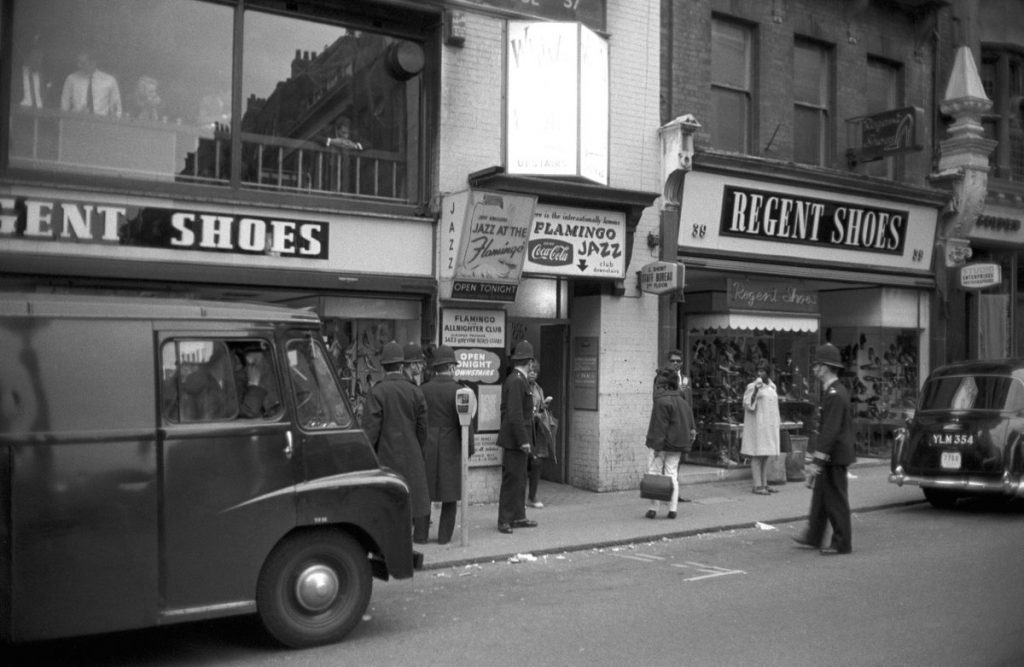Stuart Hall (1932-2014), a Jamaican who came to study in Oxford in the 1950s and thereafter becoming a teacher at secondary modern schools contributing to journals such as the New Left Review.
In the autumn of 1959 he published a review-article entitled ‘Absolute beginnings: Reflections on the secondary modern generation’ in the Universities and Left Review 7.16-25 [LINK]. It is a review of four books focusing on teenagers including Margareta Berger-Hamerschlag’s Journey into a Fog (1955, re-issued in 1959), Edward R. Braithwaite’s To Sir, with Love (1959), Dr. Mark Abrams’s The Teenage Consumer (1959), and Colin Maclnnes’s Absolute Beginners(1959). In between reviewing these books, Hall ruminates on the transition from ‘teddy boy’ fashions to mod styles, paying close attention to what the youth were wearing. This must have been a strong and enduring interest of his for in 1975 he edited, with Tony Jefferson, the influential collection of essays Resistance through Rituals: Youth Sub-Cultures in Post-War Britain(one of the essays therein was ‘Cultural responses of the teds: The defence of space and status’ by Dick Hebdige).
The following is from page 23 of Hall’s 1959 review-article:
And while the superficial changes of style and taste ring out successively, there are some important underlying patterns to observe. In London, at any rate, we are witnessing a ‘quiet’ revolution within the teenage revolution itself. The outlines of the Secondary Modern generation in the 1960’s are beginning to form. The Teddy Boy era is playing itself out. The L-P, Hi-Fi generation is on the way in. The butcher-boy jeans, velvet lapel coats and three-inch crepes are considered coarse and tasteless. They exist- but they no longer set the ‘tone’. ‘Teds’ are almost square. Here are the very smart, sophisticated young men and women of the metropolitan jazz clubs, the *Flamingo Club devotees—the other *Marquee generation. Suits are dark, sober and casual-formal, severely cut and narrow on the Italian pattern. Hair cuts are ‘modern’—a brisk, flattopped French version of the now-juvenile American crewcut, modestly called ‘College style’. Shirts are either white-stiff or solid colour close-knit wool in the Continental manner. Jeans are de rig[u]eur, less blue-denim American, striped narrowly or black or khaki. The girls are shortskirted, sleekly groomed, pin-pointed on stiletto heels, with set hair and Paris-boutique dead-pan make-up and mascara. Italian pointed shoes are absolute and universal.A fast-talking, smooth-running, hustling generation with an ad-lib gift of the gab, quick sensitivities and responses, and an acquired taste for the Modern Jazz Quartet. They are the ‘prosperity’ boys—not in the sense that they have a fortune stashed away, but in that they are familiar with the in-and-out flow of money. In the age of superinflation, money is a highly volatile thing. They have the spending habit, and the sophisticated tastes to go along with it. They are city birds. They know their way around. They are remarkably self-possessed, though often very inexperienced, and eager beneath the eyes. Their attitude to adults is less resentful than scornful. Adults are simply ‘square’. Mugs. They are not ‘with it’. They don’t know ‘how the wind blows’. School has passed through this generation like a dose of salts — but they are by no means intellectually backward. They are, in fact, sharp and self-inclined. Office-boys — even van-boys — by day, they are record-sleeve boys by night. They relish a spontaneous giggle, or a sudden midnight trip to Southend: they are capable of a certain cool violence. The ‘Teds’ are their alter-egos.
They despise ‘the masses’ (the evening-paper lot on the tubes in the evening), *’traditionals’, ‘cops’, (cowboys), ‘peasants’ and ‘bohemians’. But they know how to talk to journalists and TV ‘merchants’, debs and holiday businessmen. Their experiences are, primarily, personal, urban and sensational: sensational in the sense that the test of beatitude is being able to get so close you feel you are ‘part of the act, the scene’. They know that the teenage market is a racket, but they are subtly adjusted to it nonetheless.They seem culturally exploited rather than socially deprived. They stand at the end of the Teddy-boy era of the *Welfare State. They could be the first generation of the *Common Market …
Hall then veers off (p.24) into a review of Colin MacInnes’s Absolute Beginners which contrasts modernists to the teds in terms which are not flattering to the latter group:
Mr. MacInnes deliberately takes us on a tour of ‘modern’ attitudes. The Teds and the bottle-throwers lurk in the background—and at the end of the novel, which is set graphically in the Notting Hill riots, they emerge to take their proper place in the roll-call of urban violence. If Mr. MacInnes concentrates on the ‘modern’ advance guard I described above, it is not because the cruder, simpler ‘moral’ view of the Ted has ceased to function. In Notting Hill, and elsewhere, their writ runs. I think it is because Mr. MacInnes would have found it impossible to embody his very healthy and humane views about contemporary life in the thwarted, suffocated consciousness of the Teddy Boy. His views need the light and freshness — also the sophistication and sensitivity — of the more ‘contemporary’ article. The Modern Jazz Quartet generation may also be the generation that could lift its eyes above the slums of Paddington. Its horizons may be carefully manipulated by Fleet Street and A.R. TV: they are somehow broader, more comprehensive and basically more humane. Are they in any sense ‘socially’ more responsible? No. But they are socially more responsive. They have views which include people other than themselves.
The conclusion of his article on page 25 states:
If post-war prosperity have lifted this working class generation up out of poverty, and raised their cultural experiences and their social contacts — that is an unqualified gain. It is the sophisticated advance guard of the teenage revolution who are — at universities and training colleges and art schools and in apprenticeships — the most articulate in their protest about social issues, and who feel most strongly about South Africa or the Bomb. If the cool young men of today were to become the social conscience of tomorrow, it would be because they had seen sights in the Twentieth Century closed to many eyes before. It would not be the first revolution which came out of social deprivation, nor the first Utopia with absolute beginnings.
Hall is of course referencing Colin MacInnes’ Absolute Beginners in the title of his review-article and this closing line.
Notes
* The Flamingo jazz club (op.1952, Coventry St → 1957 Wardour St). By 1963, the Flamingo also became known as a centre of the mod subculture, where fans and musicians of both jazz and R&B music would rub shoulders.
* The Marquee jazz club (op.1958, Oxford St)
* ‘Traditionals’ it is unclear whether this refers simply to people with traditional values or to the traditional or trad Jazz fans. See other example on p.24, top of right column
* The Welfare State
* The Common Market


Post Comment